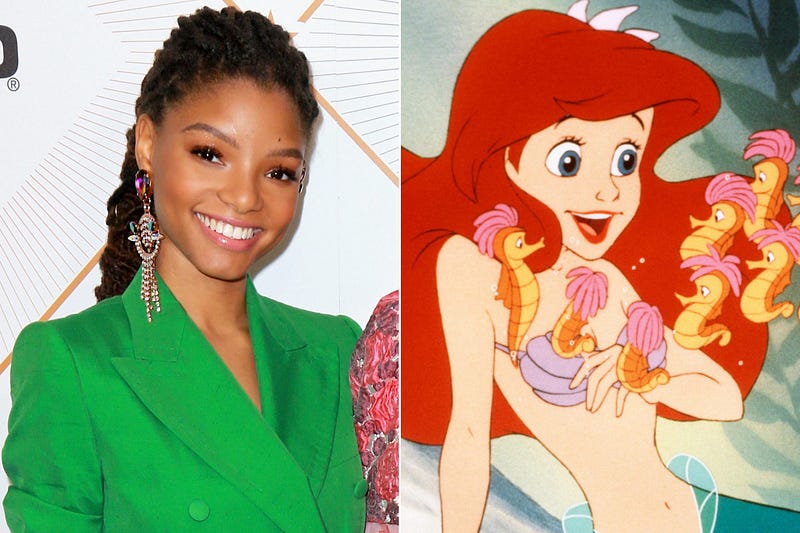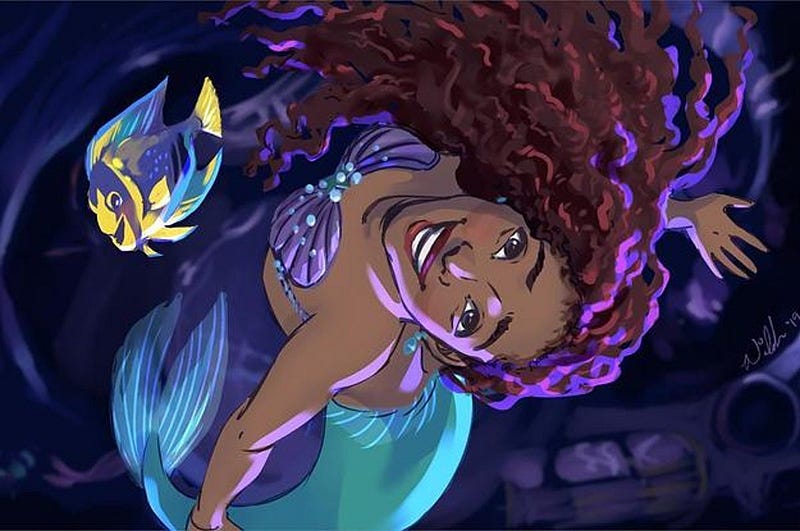# Rethinking Representation: The Ariel Casting Controversy
Written on
Chapter 1: The Ariel Casting Debate
While scrolling through TikTok, I came across a thought-provoking video about Halle Bailey's casting as Ariel in Disney's upcoming live-action adaptation.

Image via People.com
For those who might not know, Halle is part of the musical duo Chloe x Halle, and she is a light-skinned Black woman, which understandably angers some viewers.
Among those expressing frustration, there are individuals who genuinely believe that Ariel's race should not be altered. These individuals may even attempt to suggest a different casting that aligns with their vision of the ideal live-action Ariel.
However, there is also a faction that reacts with intense anger without any clear rationale.
Prior to this discussion, a video circulated that propagated misleading narratives regarding the ocean environment. The creator claimed:
…that Ariel's skin would be pale due to the lack of sunlight in the ocean’s depths (paraphrased)…
This assertion initially baffled me, prompting a marine biologist to respond:
…First of all, mermaids are not real, so being upset about this is unwarranted. Secondly, creatures that inhabit the ocean's depths are typically dark and hairy. The absence of sunlight does not dictate a sea creature's skin tone…
In today's age, where various conspiracies and unverified claims abound, distinguishing facts from speculation has become increasingly challenging. Whether mermaids exist remains an open question.
Before concluding, I want to briefly discuss the notion of "blackwashing."

Fanart via BuzzfeedNews
Blackwashing refers to the practice of changing a traditionally white character's race. This concept is intriguing, as some view it as a means to enhance representation for people of color across various industries. For instance, Miles Morales from the Spider-Man franchise was already a well-established character before his cinematic debut, yet some critics argue that the character was “blackwashed,” which seems illogical. If a character is already established or if diversity is lacking, embracing these changes shouldn't be problematic.
The debate extends to the idea that while blackwashing is acceptable, whitewashing is inherently racist. This perspective holds merit. Ultimately, people of color and other marginalized groups often struggle to find representation in mainstream media. If altering a white character’s race helps more people connect with the story, then it should be embraced. However, the justification of animosity towards a fictional character's race change raises significant concerns.
Chapter 2: Understanding the Backlash
In this insightful video, John McWhorter discusses the anti-science mindset prevalent among intolerant groups and how it impacts societal perceptions.
Dexter Dias addresses the importance of speaking out against racism in his powerful talk, emphasizing that silence contributes to its persistence.
If you enjoyed this article, consider joining as a paid member on Medium for the full experience. You can support my writing through my Medium affiliate link here.